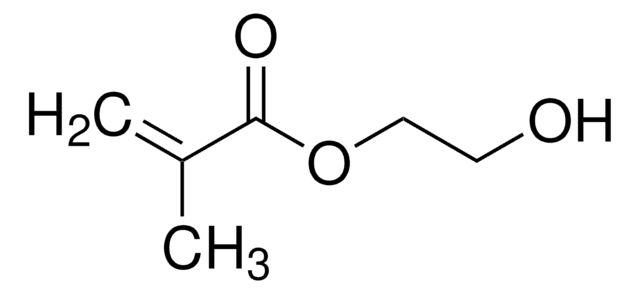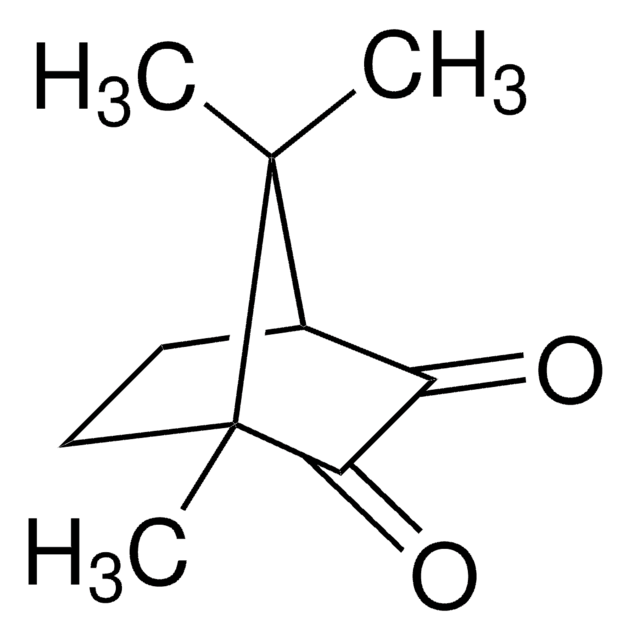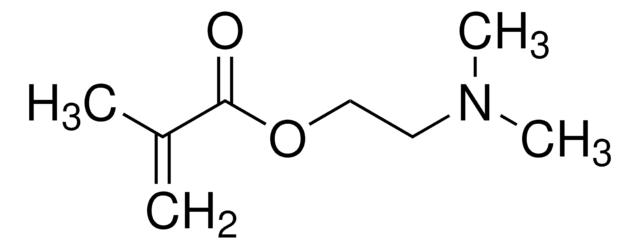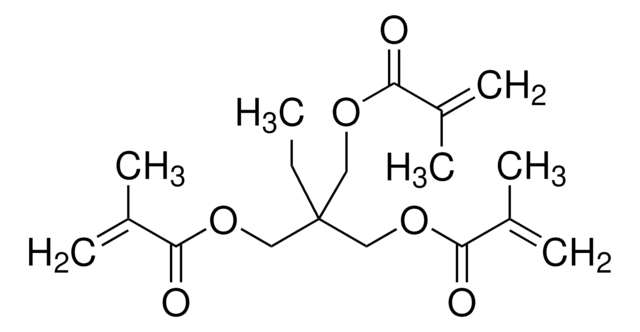261548
Triethylene glycol dimethacrylate
95%, cross-linking reagent polymerization reactions, methacrylate, 80-120 ppm MEHQ as inhibitor
Synonyme(s) :
TEGDMA
About This Item
Produits recommandés
product name
Triethylene glycol dimethacrylate, contains 80-120 ppm MEHQ as inhibitor, 95%
Niveau de qualité
Pureté
95%
Forme
liquid
Contient
80-120 ppm MEHQ as inhibitor
Pertinence de la réaction
reagent type: cross-linking reagent
reaction type: Polymerization Reactions
Indice de réfraction
n20/D 1.461 (lit.)
Point d'ébullition
170-172 °C/5 mmHg (lit.)
Densité
1.092 g/mL at 25 °C (lit.)
Extrémité Ω
methacrylate
Extrémité α
methacrylate
Architecture des polymères
shape: linear
functionality: homobifunctional
Température de stockage
2-8°C
Chaîne SMILES
CC(=C)C(=O)OCCOCCOCCOC(=O)C(C)=C
InChI
1S/C14H22O6/c1-11(2)13(15)19-9-7-17-5-6-18-8-10-20-14(16)12(3)4/h1,3,5-10H2,2,4H3
Clé InChI
HWSSEYVMGDIFMH-UHFFFAOYSA-N
Vous recherchez des produits similaires ? Visite Guide de comparaison des produits
Description générale
Application
Mention d'avertissement
Warning
Mentions de danger
Conseils de prudence
Classification des risques
Skin Sens. 1
Code de la classe de stockage
10 - Combustible liquids
Classe de danger pour l'eau (WGK)
WGK 1
Point d'éclair (°F)
332.6 °F - closed cup
Point d'éclair (°C)
167 °C - closed cup
Équipement de protection individuelle
Eyeshields, Faceshields, Gloves, type ABEK (EN14387) respirator filter
Faites votre choix parmi les versions les plus récentes :
Déjà en possession de ce produit ?
Retrouvez la documentation relative aux produits que vous avez récemment achetés dans la Bibliothèque de documents.
Les clients ont également consulté
Articles
The Progress in Development of Dental Restorative Materials
Notre équipe de scientifiques dispose d'une expérience dans tous les secteurs de la recherche, notamment en sciences de la vie, science des matériaux, synthèse chimique, chromatographie, analyse et dans de nombreux autres domaines..
Contacter notre Service technique













